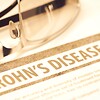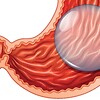Fritextsökning
Artiklar per år
Innehållstyper
-

How critical are the “Spermageddon” reports? – Researchers call for action
A much talked about meta-study indicates that sperm concentration in men’s seminal fluid has halved in 40 years. Experts in andrology that Life Science Sweden speaks to believe that the results must be taken seriously, and call for action from the Swedish authorities.
-

Column: ”Life as a F1 race”
"The F1 car makes several pit stops during a race and during a lifetime the human being may also have to come in several times for maintenance", Björn Ursing writes in a column.
-

Rapid development in blood analysis – “Sweden is leading the race”
Thousands of analytical tests using just one single drop of blood. What was revealed as a hoax just a few years ago is now a reality, according to KTH professor and serial entrepreneur Mathias Uhlén.
-

Column: ”Authentic leadership and clear mandates pave the way for more female CEOs”
”I believe that the aspect of having clear mandates and titles on the one hand and women progressing into top positions must be explored further”, Helena Strigård writes in a column.
-

Individual DNA passport could result in fewer drug side effects
You may be required to show a DNA passport when you pick up medicines at the pharmacy in the future. According to a new study, patients might suffer 30% fewer side effects if the drug treatment is adapted to their genes.
-

Claims of life science companies fleeing abroad is a myth according to survey
The claim that life science companies are moving abroad is exaggerated. In fact, only a tiny percentage is leaving the country, according to a survey.
-

Column: ”We need to exploit the benefits of the regulations“
You don’t need to search long on the Internet to find lists of the most innovative countries with Sweden ranking at the top. Sweden generally offers good conditions for growing new solutions, but it is also becoming increasingly clear that we are challenged in one area – regulations, writes Björn Arvidsson in a column.
-

The government proposes fines for pharmaceutical companies that fail to notify drug shortages in time
According to a compilation from the Swedish Medicines Agency, the number of residually notified medicines increased by 54 % in Sweden last year compared to the previous year. In a bill presented by the government a number of proposals are put forward to counteract the problem.
-

"Unclear proposal from the EU Commission on how to solve the MDR challenges"
Even before the EU regulation on medical devices (MDR) came into force, medical technology companies and doctors were concerned that it would endanger the availability of medical devices in the EU. Unfortunately, the fears have come true.
-

”Otydligt förslag från EU-kommissionen om hur MDR-utmaningarna ska lösas”
Redan innan EU-förordningen om medicintekniska produkter (MDR) trädde i kraft fanns en oro hos medicinteknikföretag och läkare för att den skulle äventyra tillgången på medicintekniska produkter i EU. Farhågorna har dessvärre besannats.
-

Combigene i danskt samarbete om kronisk smärta
Genterapiföretaget Combigene har tecknat ett samarbetsavtal med danska Zyneyro om utveckling av en ny behandling mot kronisk smärta.
-

She creates pharmaceuticals on a 3D printer
The correct dosage for each individual, regardless of whether the pharmaceutical is for a seriously ill child or a frail elderly person, is the mission of a well-advanced project with 3D-printed drugs at Uppsala University. “It will soon be available in clinics”, says Christel Bergström, who is heading the project.
-

Ökade vinster för privata vårdbolag – men allvarlig rekryteringskris hotar
Rejält ökad omsättning och den bästa lönsamheten på fem år. Det går bra ekonomiskt nu för den privata vården och omsorgen – men runt hörnet lurar utmaningar i form av bland annat personalbrist.
-

EU-godkännande för ny behandling mot svår tarmsjukdom
EU-kommissionen har godkänt Abbvies läkemedel risankizumab för svårbehandlade former av tarmsjukdomen Crohns sjukdom.
-

Spermosens tar in 24 miljoner – ska lansera ny diagnostik inför IVF
“En banbrytande produkt som kan hjälpa miljontals drabbade av ofrivillig barnlöshet”. Så beskriver bolaget Spermosens en ny mätmetod för män som företaget uppger ger bättre chans vid IVF-behandling.
-

Neanderthal genes and Nobel Prize in a popular lecture at Bioscience
An inherited gene variant from our ”evolutionary cousins” – the extinct Neanderthals – may affect how our bodies break down certain drugs. “It’s only a matter of time before we actively start screening for it,” said KI researcher Hugo Zeberg when
-

"Are we doing business the wrong way around in the Life Science Sector?"
For the past 50 years we have created solutions for problems that we thought would solve the problems. Pharmaceuticals have created big block buster drugs which were great for that time but now we realise that these drugs were in fact only tested in white men and certainly not for patients who are older who are taking a number of medications.
-

Miljöpremie föreslås för läkemedelstillverkning – ska sporra till mindre utsläpp
En miljöpremie föreslås prövas för att få ner utsläppen av läkemedelsrester. "Det här förslaget är ett första steg mot att kunna väga in miljörisker vid framställning av läkemedel och aktiv substans", säger Stefan Berggren, biträdande tillsynsdirektör på Läkemedelsverket.
-

Alert from the Swedish Medicines Agency: Many complications with gastric balloons
According to the Swedish Medicines Agency, an increasing number of serious complications are being reported in procedures with gastric balloons as a method for weight loss. The authority fears significant shortcomings in the information to patients both before and after the procedure.
-

“We need to build flexible operating theatres”
Flexible operating theatres, micro-sensors on surgeons to monitor their well-being and 3D images projected onto organs to be operated on. These are a few ideas that three specialist surgeons are suggesting for the operating theatre of the future.
-

Biosimilars bring price pressure, but are they sufficiently used?
When biosimilars were introduced just over 16 years ago, hopes were raised that they would give many more patients access to effective but otherwise extremely expensive treatments with biological drugs. So, how well has Swedish healthcare used biosimilars? The answer partly depends on whom you ask.
-

Bought a tablet factory – and built his own empire
In 1995, Thomas Eldered was CEO of one of Pharmacia’s factories in the Stockholm area when the Swedish pharmaceutical giant, after a takeover, decided to move its production abroad. 34-year-old Thomas was facing an imminent risk of losing his job. However, instead, it actually turned out to be the starting point for one of the biggest success stories in Swedish life science.
-

Marie Gårdmark: Potential step change – EU regulators get to play with data
A new pilot from EMA is starting in September to assess wether the analysis of 'raw data' by regulatory authorities improves the evaluation of marketing approval for new medicines. Marie Grådmark writes in a column that she is looking forward to the outcome of the pilot to hopefully then understand if “in house” analyses actually will add value.
-

Richard Bergström Årets alumn vid Uppsala universitet
Vaccinsamordnaren Richard Bergström har utsetts till Årets alumn av Uppsala universitet. ”Richard Bergström är en sann alumn och ett sant föredöme för våra studenter” står det i nomineringen.